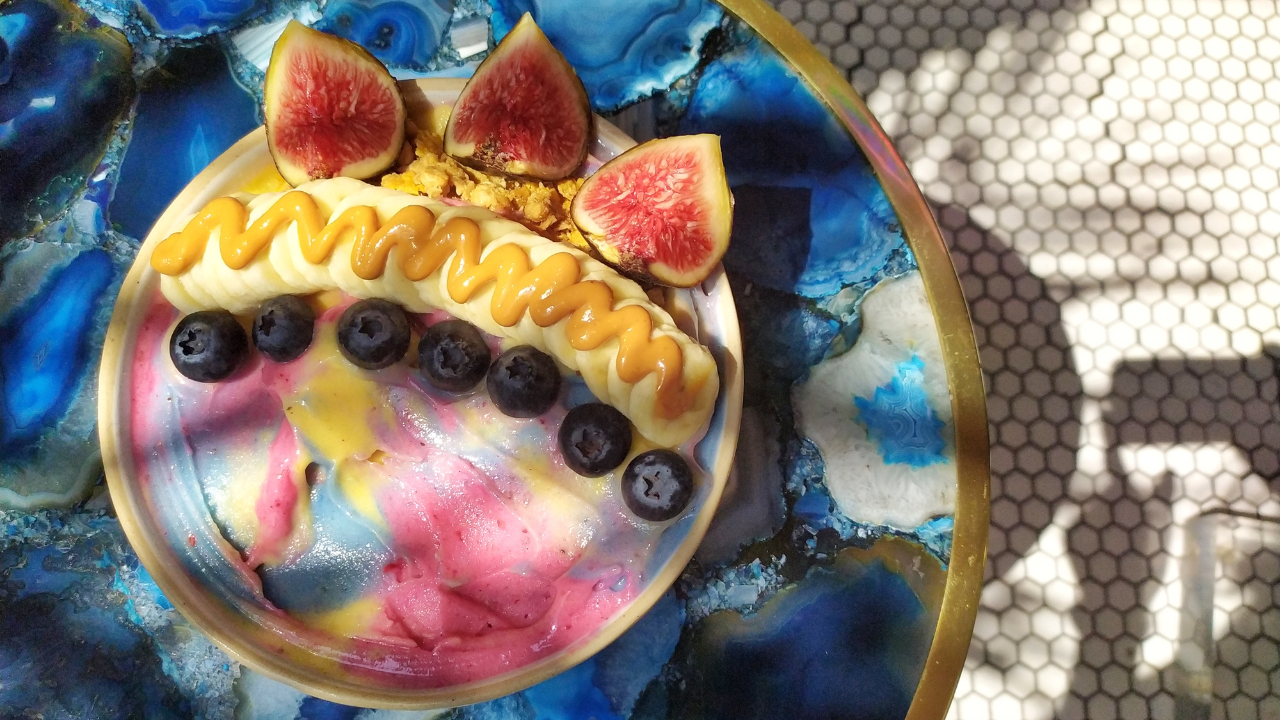The Spiritual Essence of Coffee: A Journey Through Its History, Benefits, and Cautions
Ashley Michaud • October 22, 2023
The Spiritual Essence of Coffee: A Journey Through Its History, Benefits, and Cautions
Coffee, beyond its role as a beloved morning pick-me-up, has a rich and intricate history deeply intertwined with spirituality and culture. Its roots extend back centuries, revealing a tale of not just a beverage, but a conduit for connection, contemplation, and even spiritual exploration. From its traditional use in spiritual rituals to its modern-day association with productivity, coffee's story is one of both inspiration and caution.
Spirituality and Traditional Use:
Dating back to ancient Ethiopia, the birthplace of coffee, this dark elixir was once revered for its purported mystical properties. The Oromo people, early cultivators of the coffee plant, incorporated coffee berries into their spiritual ceremonies, using them to create invigorating brews during communal gatherings and rituals. As coffee's popularity spread across the Arabian Peninsula, Sufi mystics recognized its ability to heighten awareness during their meditative practices, utilizing it to stay awake during nocturnal devotions and discussions of divine matters.
Entheogenic History:
Beyond its role as a mere stimulant, some cultures have viewed coffee as a potential portal to altered states of consciousness. Though not traditionally categorized as an entheogen, the practice of consuming coffee to induce heightened states of awareness has historical roots in certain mystical sects. The Sufi mystics of Yemen were known to consume coffee in large quantities during their spiritual gatherings, believing it enhanced their spiritual experiences and facilitated a deeper connection to the divine.
Benefits of Working with Coffee:
In the modern world, coffee has become more than a beverage; it's a tool for productivity, creativity, and community. Its stimulating effects have been associated with increased focus, alertness, and cognitive performance. Moreover, the ritual of preparing and sharing coffee fosters a sense of camaraderie and connection, often serving as a catalyst for meaningful conversations and communal bonds. Studies have also suggested that moderate coffee consumption may offer potential health benefits, including reduced risk of certain diseases and improved mental well-being.
Negatives of Working with Coffee:
Despite its allure, the consumption of coffee isn't without its drawbacks. Excessive intake can lead to caffeine dependency, insomnia, and heightened anxiety. Individuals with certain health conditions, such as heart problems or acid reflux, may experience adverse effects from excessive coffee consumption. Additionally, the reliance on coffee as a productivity aid can sometimes foster an unsustainable work culture, leading to burnout and an overemphasis on relentless productivity at the expense of holistic well-being.
Looking Ahead:
As we continue to navigate the nuanced relationship between spirituality, culture, and consumption, it's imperative to approach coffee with mindfulness and moderation. Acknowledging its historical significance while understanding its potential pitfalls allows us to cultivate a balanced and respectful relationship with this ancient elixir. Embracing the spiritual essence of coffee while recognizing its limitations paves the way for a more conscious and harmonious integration of this revered beverage into our daily lives.
Call to Action:
Embark on a transformative journey to explore the spiritual dimensions of your life with the guidance of a seasoned coach. Contact me today to delve deeper into the rich tapestry of spirituality and self-discovery, using coffee as a catalyst for profound personal growth and introspection. Let's embark on a shared odyssey of mindfulness and awaken the true essence within.
Footnotes/References:
Weinberg, Bennett Alan, and Bonnie K. Bealer. "The World of Caffeine: The Science and Culture of the World's Most Popular Drug." Routledge, 2001.
Pendergrast, Mark. "Uncommon Grounds: The History of Coffee and How It Transformed Our World." Basic Books, 2019.
Jamieson, Dale. "Coffee Culture: Local Experiences, Global Connections." Routledge, 2020.
Arnot, Bob. "Coffee Basics: A Quick and Easy Guide." John Wiley & Sons, 2021.

Unlock the wisdom of ancient shamanic teachings to break free from emotional struggles and reclaim your inner peace. In this in-depth guide, explore six powerful principles that can transform your mindset, release past pain, and align you with nature’s healing energy. Discover actionable steps, rituals, and exercises to integrate these teachings into your daily life with joy and clarity. Start your journey to emotional freedom today!

Discover the profound role algae and fungi have played in shaping life on Earth, sustaining ecosystems, and enhancing human health. From nutrition and medicine to environmental restoration and consciousness expansion, these ancient organisms continue to offer us powerful benefits. Learn how to honor, use, and integrate algae and fungi into your daily life for better health, sustainability, and spiritual connection.

Psychedelics open the door to profound healing, but true transformation happens through integration. This article explores the importance of grounding after a psychedelic journey, the Ayurvedic layers of being, and practical steps to support your mind, body, and spirit. Discover why integration is your sacred responsibility and how working with an integration coach can help you embody lasting change.

Sacred tobacco, known as Rapé or Mapacho, has been used for centuries by indigenous tribes for healing, prayer, and spiritual connection. Unlike commercial tobacco, which is processed for addiction, this medicine is prepared with reverence and intention. Learn about its benefits, ceremonial use, right relationship, and how to integrate it into your spiritual practice.

Embrace the Sacred Journey of Gentle Birth: A Guide to Pain-Free, Ecstatic, and Empowering Birth Experiences
This post explores the transformative potential of gentle birth, including pain-free, ecstatic, orgasmic, freebirth, and water birth. By tapping into the wisdom of hypnobirthing, Ina May Gaskin’s techniques, and powerful affirmations, you’ll discover how to create a peaceful, empowering environment for your birth. We walk you through the stages of labor, offering a step-by-step guide to help you prepare mentally, emotionally, and physically for a calm and beautiful birth experience. Learn how to harness your body’s wisdom, embrace the sensations of labor with trust, and welcome your baby into the world in a way that is sacred and transformative.

Explore the fascinating world of DMT in this comprehensive article, where we delve into its history, effects, benefits, and the role it plays in psychedelic healing. Whether you're curious about DMT's spiritual significance, its therapeutic potential, or its powerful role in consciousness expansion, this article provides insightful information backed by scientific research and personal experiences. Learn how DMT may help in unlocking deeper states of awareness and healing, and how it fits within the broader context of natural medicine and psychedelic integration.

Discover the ultimate guide to holistic and natural diapering! Learn the history of diapering, explore eco-friendly options like cloth diapers and elimination communication, and find DIY recipes for baby wipes, rash creams, and powders. Perfect for moms looking to reduce waste, save money, and keep baby’s skin naturally healthy. Written by a second-time mom with firsthand experience, this guide is packed with tips, tricks, and inspiration for embracing sustainable diapering 🌿💚

The postpartum period is a sacred and transformative time, offering a chance to bond deeply with your baby, restore your body, and honor your spiritual journey into motherhood. From placenta rituals and cord cutting to the importance of rest and breastfeeding, this comprehensive guide explores natural practices from around the world that promote healing, connection, and empowerment. Whether you’re a first-time mom or welcoming another child, discover meaningful rituals, cultural wisdom, and practical tips to nurture yourself and your growing family. Embrace the fourth trimester with love, self-care, and support.

Finding out your baby is in a breech position late in pregnancy can be overwhelming, especially if you’re planning a home birth. But with a blend of natural techniques, trusted support, and an understanding of breech birth history, there’s hope and empowerment on this journey. 🧡
I recently faced this challenge at 35 weeks, leaving a routine visit with my midwife in tears as I learned about the medical interventions often recommended for breech positioning. But after speaking with my doula and researching natural approaches, I found a renewed sense of calm and purpose.
In this article, I share my story, a holistic guide on breech positioning, and insights into traditional methods that honor both mom and baby. From Spinning Babies techniques to affirmations and visualizations, I hope this piece brings clarity and comfort to anyone on a similar path. 🌿✨
🔗 Read more about navigating breech with confidence!

Discover the essentials of ethical and impactful psychedelic retreats in this comprehensive guide, covering key practices for retreat leaders and attendees alike. Learn about preparation, integration, and the importance of maintaining integrity in the world of plant medicine ceremonies, including mushroom, DMT, ayahuasca, iboga, and bufo retreats. With 20+ years of experience in psychedelic integration coaching, this article sheds light on the growing popularity—and challenges—facing these transformative experiences. Find guidance on due diligence, ethical considerations, and creating a truly healing, heart-centered journey that respects indigenous traditions and the sanctity of plant medicine.


